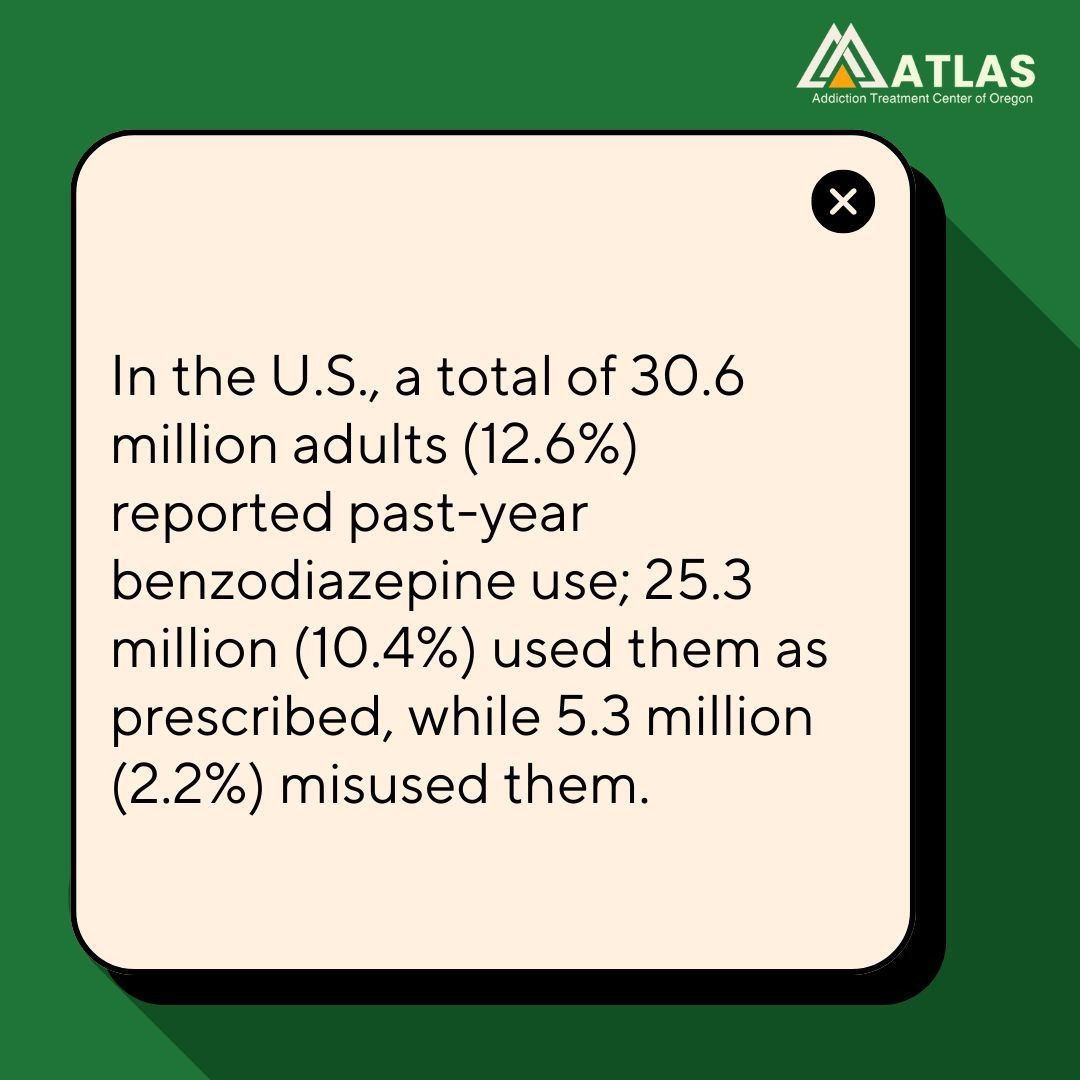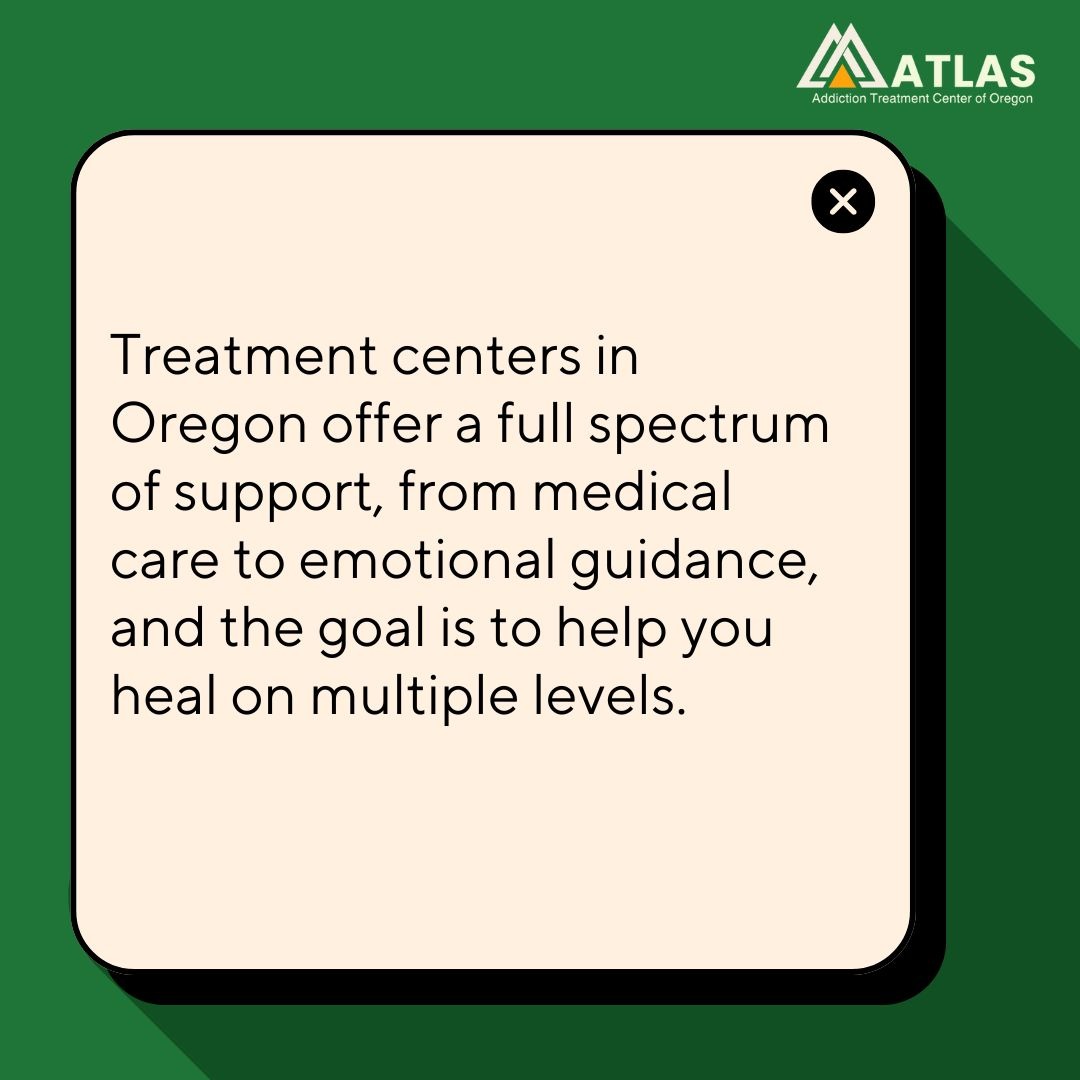%20(1).jpg)
You might have started taking benzodiazepines to manage anxiety, panic, or trouble sleeping, and at first, they probably helped. But over time, long-term use can begin to take a serious toll on your body, mind, and emotions. If you’re dealing with these effects, an addiction treatment center in Oregon can guide you safely through recovery and help you regain control.
In this article, you’ll learn about the long-term effects of benzodiazepine use and how treatment can help you reverse these impacts and restore your overall health and well-being.

Benzodiazepines are medications that calm your nervous system, making them helpful for managing conditions like anxiety, insomnia, or seizures.
In the U.S., a total of 30.6 million adults (12.6%) reported past-year benzodiazepine use; 25.3 million (10.4%) used them as prescribed, while 5.3 million (2.2%) misused them. While these medications can be effective in the short term, prolonged use can lead to dependence, making it difficult to stop without experiencing withdrawal symptoms or cravings.
Benzodiazepines become even more dangerous when you combine them with other substances.
Mixing them with opioids, alcohol, or stimulants can lead to severe respiratory depression, blackouts, or overdose. This combination can quickly spiral into a high-risk pattern that requires more specialized care, such as benzodiazepines, fentanyl, and meth addiction treatment in Oregon.
Because long-term misuse affects both your body and brain, it’s important to understand how these changes show up day to day and why getting support from an addiction treatment center in Oregon can help you reverse them over time.
First, let’s take a look at the physical effects:

After dealing with the physical toll of long-term benzodiazepine use, the emotional and psychological weight can hit just as hard, and sometimes even harder. That’s why programs specializing in benzodiazepine addiction treatment in Oregon place just as much focus on mental health as they do on physical recovery.
Here’s how prolonged benzodiazepine use can take a toll on your emotional and mental health:
Over time, long-term benzodiazepine use can create a cycle that becomes increasingly difficult to break, highlighting the need for benzodiazepine addiction treatment in Oregon.
Your body builds tolerance, which means the same dose no longer works the way it used to. As tolerance rises, withdrawal symptoms can appear quickly — anything from heightened anxiety to tremors — making you feel stuck between needing more of the medication and fearing what happens without it.
Another concern is cross-addiction. When benzodiazepines stop giving the same relief, some people turn to other substances like fentanyl or meth to fill the gap. This shift can happen subtly and escalate fast, especially if you’re already struggling with stress, mental health challenges, or unmanaged withdrawal symptoms.
These risks make it crucial to seek an addiction treatment center in Oregon that understands the complexities of long-term benzo dependence. With medical oversight, therapeutic support, and a structured plan for recovery, you can safely detox, stabilize, and rebuild your health without facing these challenges alone.

After understanding how long-term benzodiazepine use can affect you physically, mentally, and emotionally, the next step is figuring out what you can actually do to heal. The good news is that many of these effects can improve when you receive the right support, especially through benzodiazepine addiction treatment in Oregon.
Tapering slowly helps your body adjust without overwhelming withdrawal symptoms. With medical oversight, you can reduce your dosage at a pace that protects your health and safety.
Therapy gives you space to untangle the emotional and behavioral patterns connected to benzo use. It also helps rebuild coping skills so you’re not relying on medication to manage stress or anxiety.
Treatment centers in Oregon offer a full spectrum of support, from medical care to emotional guidance, and the goal is to help you heal on multiple levels. This integrated approach strengthens your recovery foundation and improves long-term outcomes.
Healthy routines speed up your body’s ability to recover. Simple changes such as consistent sleep habits, balanced meals, physical activity, and stress-reduction practices can stabilize your mood and improve cognitive functioning.
Ongoing evaluations help you track improvements and identify lingering struggles. This ensures you get the right interventions at the right time, whether that's cognitive therapy, mental health support, or adjustments to your treatment plan.
Addressing long-term effects of benzodiazepine use and staying sober is challenging, and trying to do it alone can feel overwhelming. That’s why finding the right addiction treatment center matters.
When you’re looking at programs, it helps to understand the main options:
Whichever option you choose, one thing remains the same: Individualized care plan is key. And this is especially needed if you’re managing dual diagnoses or multiple substance use issues. Programs that understand your unique situation can integrate strategies for benzodiazepine recovery alongside other substance concerns, such as fentanyl addiction treatment in Oregon, while helping you develop tools for long-term sobriety.

Long-term benzodiazepine use can leave lasting effects on your memory, mood, and overall well-being, and it often intersects with other substance challenges like meth or fentanyl. Seeking care through an addiction treatment center in Oregon ensures you get professional guidance to address withdrawal safely, rebuild daily routines, and work on both physical and emotional recovery.
At Atlas Treatment Center, we offer programs that provide structured support for benzodiazepine, meth, and fentanyl addiction treatment in Oregon. With experienced clinicians, personalized therapy, and practical strategies, you can repair the impacts of long-term use and focus on restoring balance in your life. Contact us to get started.

Author
Emmy is a content specialist dedicated to helping brands boost their online presence and reputation through tailored, well-researched copy. With expertise across diverse niches—including mental health—she crafts messages that resonate with target audiences.


.webp)
Don't let addiction define your future. We're ready to support you every step of the way. Reach out to us for a free, confidential assessment.

